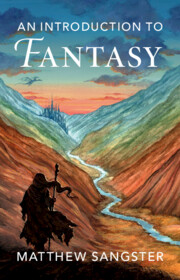Book contents
- An Introduction to Fantasy
- An Introduction to Fantasy
- Copyright page
- Contents
- Figures
- Introduction
- 1 Fantasy, Language and the Shaping of Culture
- 2 The Value of Iteration
- 3 Root Formations
- 4 Enlightenment and its Shadows
- 5 Fashioning Worlds
- 6 Fantastic Communities and Common Ground
- Envoi
- Acknowledgements
- Select Bibliography
- Index
Introduction
Published online by Cambridge University Press: 07 October 2023
- An Introduction to Fantasy
- An Introduction to Fantasy
- Copyright page
- Contents
- Figures
- Introduction
- 1 Fantasy, Language and the Shaping of Culture
- 2 The Value of Iteration
- 3 Root Formations
- 4 Enlightenment and its Shadows
- 5 Fashioning Worlds
- 6 Fantastic Communities and Common Ground
- Envoi
- Acknowledgements
- Select Bibliography
- Index
Summary
The introduction explores what is at stake in Fantasy culture. It opens with a passage from a 1951 letter by J. R. R. Tolkien that expresses his aspirations and doubts, before exploring how Tolkien’s success served to catalyse a series of formations inspired in part by him but not bounded or limited by his conceptions. Through discussing Michael Moorcock’s essay ‘Epic Pooh’, the Ballantine Adult Fantasy Series, societies and awards in the 1970s, and Junot Díaz’s The Brief Wondrous Life of Oscar Wao, it models Fantasy as a generative, ongoing conversation. The introduction then engages directly with questions of definition, considering the centrality of impossibility to a consensus about what Fantasy means, discussing important work by Brian Attebery and Farah Mendlesohn, and asserting that Fantasy is best understood as a complex assemblage of creators, audiences, languages, forms, conventions, tropes, communities, institutions, histories and traditions. It closes by arguing that dismissing Fantasy as an escapist form is both quixotic and myopic. People often have very good reasons to want to get outside dominant frameworks for a while, and they return from Fantasy worlds refreshed and with valuable new perspectives.
- Type
- Chapter
- Information
- An Introduction to Fantasy , pp. 1 - 52Publisher: Cambridge University PressPrint publication year: 2023

